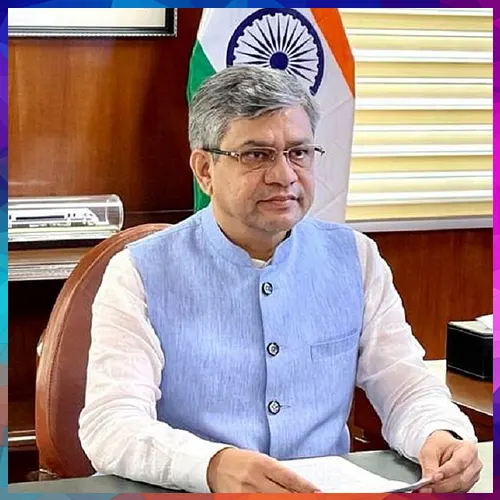
The minister noted that India’s past manufacturing opportunities were hindered by restrictive regulations but emphasized that recent reforms, guided by Prime Minister Narendra Modi’s four-pillar policy framework, have paved the way for rapid economic and industrial expansion
India is on the brink of a significant technological milestone with the imminent launch of its first indigenous semiconductor chip. Union Minister for Electronics and Information Technology, Ashwini Vaishnaw on Thursday, March 27, announced that five semiconductor manufacturing units are currently under construction in the country. Speaking at a summit, he highlighted India's rapid strides in electronics manufacturing, which has emerged as one of the nation's top three export sectors.
"We have five semiconductor units under construction and will soon witness the rollout of India’s first domestically developed chip. Additionally, telecom manufacturing is expanding at an impressive pace," Vaishnaw stated.
He acknowledged that India had previously lost manufacturing opportunities due to restrictive regulations but emphasized that extensive reforms in recent years have set the stage for accelerated growth. These transformations, he said, are driven by a clear policy framework laid out by Prime Minister Narendra Modi, which is anchored on four key pillars.
India’s growth driven by reforms
The first pillar focuses on public investment in infrastructure, with the government allocating nearly Rs 11 lakh crore to social, digital, and physical infrastructure development. This push has propelled India to become the world’s second-largest 5G market, while the Indian Railways is set to transport 1.6 billion tons this year, making it the second-largest carrier globally.
The second pillar underscores India's manufacturing resurgence. Vaishnaw reiterated that past regulatory constraints stifled manufacturing opportunities, but policy reforms have now enabled the sector to thrive.
Inclusive development constitutes the third pillar, benefiting nearly 80 crore citizens. The government’s sanitation initiatives have significantly improved access to household toilets for over 13 crore people.
The fourth pillar pertains to comprehensive legal and economic reforms. Vaishnaw pointed to the introduction of three new laws aimed at overhauling India's criminal justice system, marking the most significant legal transformation since Independence.
These initiatives are expected to sustain India's economic growth at a steady 6-8% in the coming years.
Highlighting India's growing investment potential, Vaishnaw urged investors to act promptly. He noted that India's economy, currently valued at Rs 331 lakh crore, has maintained an investment rate of around 31%, driven by substantial contributions from both the government and private sector.
With a robust policy framework and a clear vision for self-reliance in semiconductor manufacturing, India is poised to make a significant mark in the global tech landscape.See What’s Next in Tech With the Fast Forward Newsletter
Tweets From @varindiamag
Nothing to see here - yet
When they Tweet, their Tweets will show up here.





























